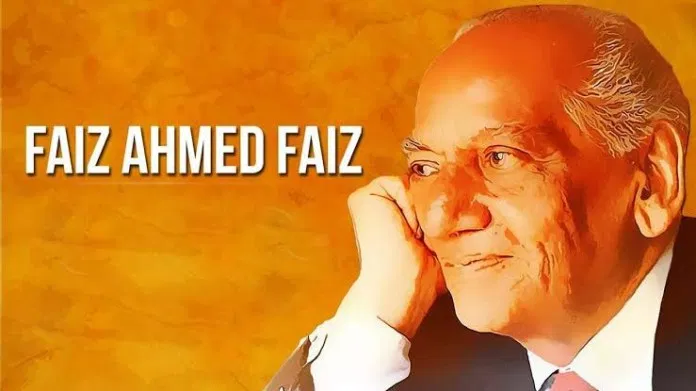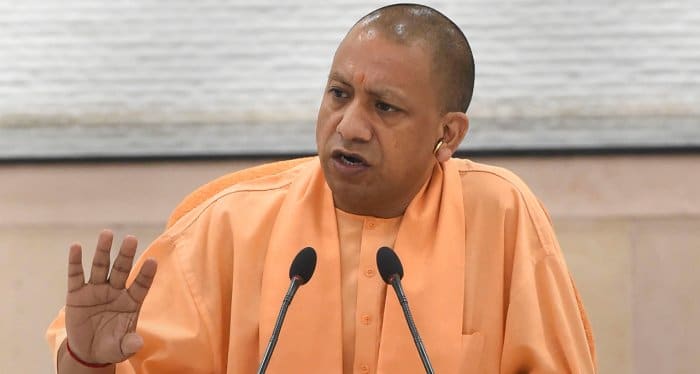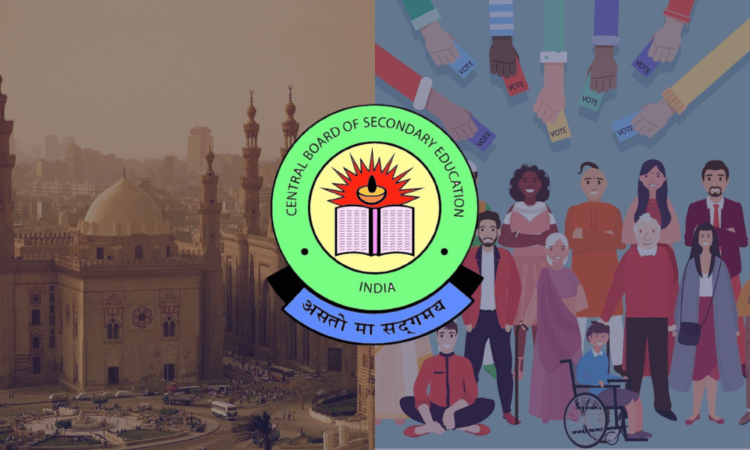In a controversial move, the CBSE has dropped several chapters, including the Non-Alignment Movement by Jawaharlal Nehru, the Mughal Courts, the rise of Islamic Empires, poems by Faiz Ahmed Faiz, and even chapters on Democracy and diversity, Cold War, etc., from the syllabus of classes 10th to 12th.

When inquired about the reason behind this move, the officials of the largest educational board maintained that the exclusions were part of the syllabus rationalization process and were in line with NCERT recommendations.
For the class 10th syllabus this year, the topic “impact of globalization on agriculture” from a chapter on ‘Food Security’ has been dropped. The translated excerpts from two poems in Urdu by Faiz Ahmed Faiz, the ‘Religion, Communalism, and Politics – Communalism, Secular State’ section have also been excluded this year. From the class 11 history syllabus, the chapters on “Central Islamic Lands” have been dropped. These chapters discuss Islamic history from its emergence, the rise of the caliphate, and subsequent empire building.

Further, chapters from the class 12 history syllabus, titled ‘The Mughal Court: Reconstructing Histories through Chronicles’ were also dropped. This text explored various manuscripts and chronicles from the Mughal courts in order to reconstruct the social, religious, and cultural history of the Mughals.
While the teachers are concerned that the students will be deprived of the opportunity to learn important pieces of history that played a significant role in shaping the country, “dropping the chapters on Islamic Empires will deprive the students of learning about the idea of Islam, the chapter is crucial also because the world’s Muslim population exceeds one billion and the community makes up 14.2 percent of India’s population”, a teacher said.
However, this is not the first time that CBSE has dropped chapters that have been part of the syllabus for decades. While one might think of this move as a timely practice of syllabus rationalization, some academics suspect that the move is in sync with the views of the current dispensation. Soon after the BJP government came into power in 2014, there have been several instances where the BJP govt. made headlines for attempting to tamper with and rewrite history. From renaming places to editing school history textbooks, India’s Mughal past is being erased as the Modi govt. pushes a Hindutva agenda.

“Tampering with history: how India’s ruling party is erasing the Muslim heritage of the nation’s cities,” read the headline of an article published in May 2019 by the Conversation.
“The renaming of cities is part of a growing trend in the lead-up to India’s current general election, to appeal to its voter base of Hindu nationalists, the BJP is attempting to erase India’s Mughal legacy both from the landscape and from the history books”, the article further added.
The campaign to rename places was led by the Hindu priest Yogi Adithiyanath, current CM of Uttar Pradesh. He has repeatedly made calls to reclaim towns, streets, airports, and railway stations that are seen as reminders of the Muslim past.

“The right-wing Indian government has been attempting to rewrite the country’s Islamic past, replacing hard facts with murky fiction. This is all part of the grand plan to stroke nationalistic favor and communal tensions to divert attention from the issues facing the country”, wrote another article published in October 2020 by SCMP.
Some such instances include :
▪︎ The renaming of the historic city of Allahabad. The name is no longer on the map of India. In October 2018, the BJP changed its name to Prayagraj.
▪︎ In the same year, 150-years-old Mughalsarai, the central railway junction, was renamed, Deendayal Upadhyay.
▪︎ The 18th-century ruler of the Mysore kingdom and a celebrated administrator, Tipu Sultan has been labeled a fanatic and erased from textbooks.
▪︎ The Citizenship Amendment Act and the National Registry of Citizens were further introduced with the purpose of segregating Muslims.
▪︎ Another major win for the Hindutva ideology, was when the 16th century Babri Masjid was obliterated after a ground consecration ceremony to build a temple on the site.
“All this points to a clear agenda to disempower the minority Muslim community by erasing their contributions to India’s multi-faith past and isolating them as outsiders. All it takes is for two generations of India’s youth to grow up with this biased version of history, for it to become an immutable fact. India’s unique heritage of syncretism is under threat, and that is certainly a cause for worry”, wrote Charukesi Ramadurai, an Indian freelance journalist.
Also Checkout: The need for transparency in the conduct of politicians and ministers
















